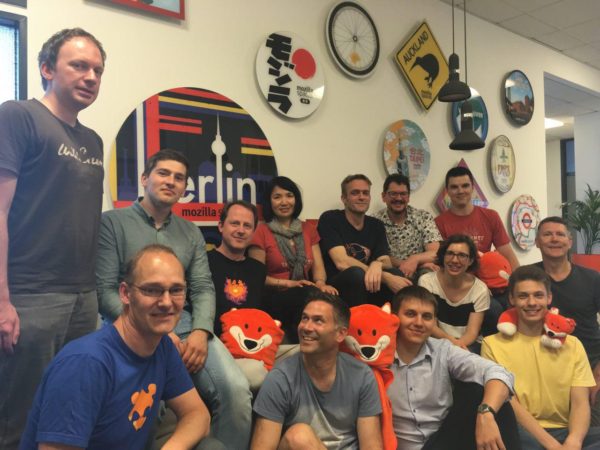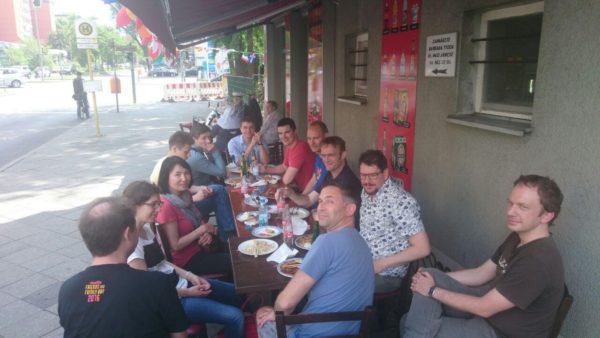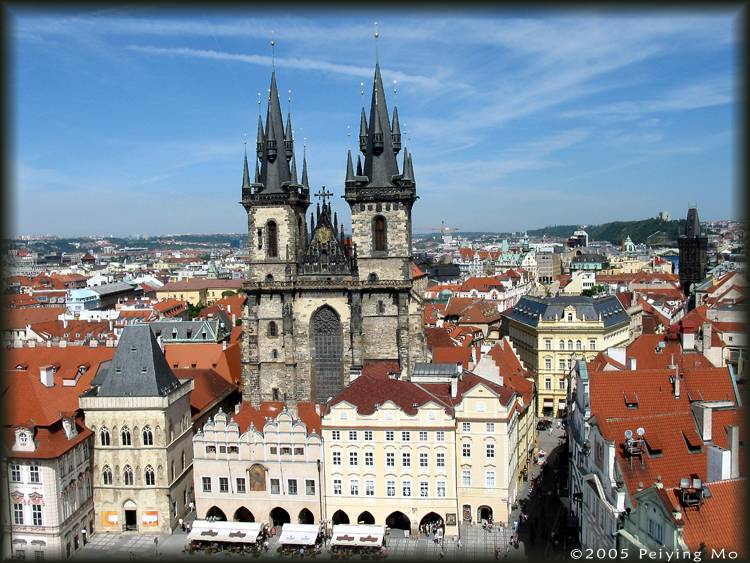After much delays, collectively we picked a balmy first weekend of June and Berlin as our host city for a localization hackathon. We had four representing each of Dutch/Frisian and Ukrainian communities, three of German, one of South African English. Most of them had not been to an l10n hackathon, many have never not met in person within the community even though they had been collaborating for years.

As with the other hackathons this year we allowed each team to plan how they spent their time together, and set team goals on what they wanted to accomplish over the weekend. The localization drivers would lead some group discussions. As a group, we split the weekend covering the following topics:
A series of spectrograms where attendees answer yes/no, agree/disagree questions by physically standing on a straight line from one side of the room to the other. We learned a lot about our group on recognition, about the web in their language, and about participation patterns. As we’re thinking about how to improve localization of Firefox, gaining insights into localizers hearts and life is always helpful.
Axel shared some organizational updates from the Orlando All-Hands: we recaped the status of Firefox OS and the new focus on Connected Devices. We also covered the release schedule of Firefox for iOS and Android.
We spent a bit more time talking about the upcoming changes to localization of Firefox, with L20n and repository changes coming up. In the meantime, we have a dedicated blog post on l20n for localizers, so read up on l20n there. Alongside, we’ll stop using individual repositories and workflows for localizing Firefox Nightly, Developer Edition, Beta, and release. Instead the strings needed for all of them will be in a single place. That’s obviously quite a few changes coming up, and we got quite a few questions in the conversations. At least Axel enjoys answering them.

Our renewed focus on translation quality that resulted in development of the style guide template as a guideline for localization communities to emulate. We went through all the categories and sub-categories and explained what was expected of them to elaborate and provide locale specific examples. We stressed the importance of having one as it would help with consistency between multiple contributors to a single product or all products and projects across the board. This exercise encouraged some of the communities who thought they had a guide to review and update, and those who didn’t have one to create one. The Ukrainian community created a draft version soon after they returned home. Having an established style guide would help with training and on boarding new contributors.
We also went over the categories and definitions specified in MQM. We immediately used that knowledge to review through live demo in Pontoon-like tool some inconsistencies in the strings extracted from projects in Ukrainian. To me, that was one of the highlights of the weekend: 1) how to give constructive feedback using one of the defined categories; 2) Reoccurring type of mistakes either by a particular contributor or locale; 3). Terminology consistency within a project, product or a group of products, especially with multiple contributors; 4) Importance of peer review
For the rest of the weekend, each of the community had their own breakout sessions, reviewed their own to-do list, fixed bugs, completed some projects, and spent one on one time with the l10n drivers.
 We were incredibly blessed with great weather. The unusually heavy rain that flooded many parts of Germany stopped during our visit. A meetup like this would not be complete without experiencing some local cultures. Axel, a Berlin native was tasked to show us around. We walked, walked and walked and with occasionally public transportation in between. We covered several landmarks such as the Berlin Wall, the Brandenburg Gate, several memorials, the landmark Gedächtniskirche as well as parks and streets crowded with the locals. Of course we sampled cuisines that reflected the diverse culture that Berlin had been: we had great kebabs and the best kebabs, Chinese fusion, the seasonal asparagus and of course the German beer. For some of us, this was not the first Berlin visit. But a group activity together, with Axel as our guide, the visit was so much memorable. Before we said goodbye, the thought of next year’s hackathon came to mind. Our Ukraine community had volunteered to host it in Lviv, a beautiful city in the western part of the country. We shall see.
We were incredibly blessed with great weather. The unusually heavy rain that flooded many parts of Germany stopped during our visit. A meetup like this would not be complete without experiencing some local cultures. Axel, a Berlin native was tasked to show us around. We walked, walked and walked and with occasionally public transportation in between. We covered several landmarks such as the Berlin Wall, the Brandenburg Gate, several memorials, the landmark Gedächtniskirche as well as parks and streets crowded with the locals. Of course we sampled cuisines that reflected the diverse culture that Berlin had been: we had great kebabs and the best kebabs, Chinese fusion, the seasonal asparagus and of course the German beer. For some of us, this was not the first Berlin visit. But a group activity together, with Axel as our guide, the visit was so much memorable. Before we said goodbye, the thought of next year’s hackathon came to mind. Our Ukraine community had volunteered to host it in Lviv, a beautiful city in the western part of the country. We shall see.








No comments yet
Post a comment